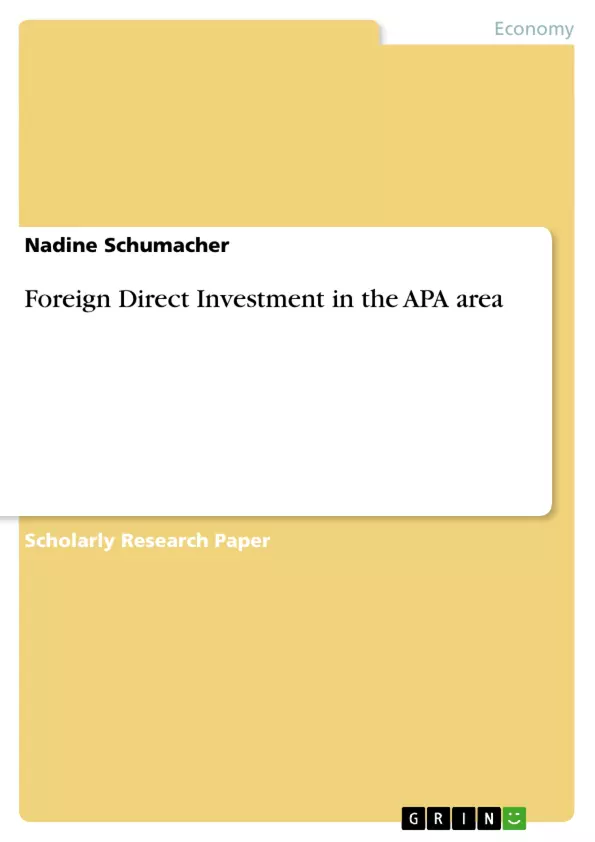This report discusses why Alexandra plc should invest internationally using FDI and why nations in the Far East and Oceania attempt to encourage them to do so. The author recommends Australia and Malaysia as its regional platforms for business activities because these countries would be most suitable for Alexandra plc to invest.
In the second part of the report, the author advices how Alexandra plc can evaluate and prepare for the risks, that might occur in international investment.
Inhaltsverzeichnis (Table of Contents)
- Section A
- About Alexandra plc
- Introduction
- Reasons for cross-border investing in Malaysia and Australia
- Motivation of the host country
- Conclusion
- Section B
- Introduction
- Evaluation and Preparation of Country Risks
- Conclusion
Zielsetzung und Themenschwerpunkte (Objectives and Key Themes)
This report explores the rationale behind Alexandra plc's international investment using foreign direct investment (FDI). It specifically focuses on Malaysia and Australia as potential locations for the company's business activities. The report also provides guidance on assessing and mitigating the risks associated with international investment.
- Reasons for international investment
- Attractiveness of Malaysia and Australia for FDI
- Motivations of host countries in attracting FDI
- Evaluation and preparation for country risks
- Impact of FDI on host countries
Zusammenfassung der Kapitel (Chapter Summaries)
- Section A: This section begins by introducing Alexandra plc, a leading UK supplier of workwear. It then delves into the concept of FDI and highlights the reasons why companies engage in cross-border investment. The section analyzes the specific advantages of Malaysia and Australia as locations for FDI, considering factors such as market size, labor costs, and infrastructure. The motivation of host countries in attracting FDI is discussed, emphasizing the role of FDI in economic development and competitiveness.
- Section B: This section focuses on practical aspects of international investment, advising Alexandra plc on how to evaluate and prepare for the risks associated with FDI. It explores various risks and strategies for mitigation, providing a comprehensive overview of the challenges and opportunities involved in international business expansion.
Schlüsselwörter (Keywords)
Key terms and concepts covered in this report include foreign direct investment (FDI), cross-border investment, market-seeking FDI, efficiency-seeking FDI, resource-seeking FDI, host country motivations, country risk assessment, Malaysia, Australia, textile industry, labor costs, infrastructure, economic development, and global competitiveness.
Frequently Asked Questions
Why is Alexandra plc considering international investment?
Alexandra plc, a workwear supplier, seeks to leverage Foreign Direct Investment (FDI) to access new markets, reduce labor costs, and improve global competitiveness.
Which countries are recommended for investment in the APA area?
The report recommends Malaysia and Australia as ideal regional platforms due to their infrastructure, market size, and favorable investment climates.
What are the different types of FDI motivations?
The report distinguishes between market-seeking FDI (finding new customers), efficiency-seeking FDI (lowering costs), and resource-seeking FDI (accessing raw materials).
How can a company prepare for country risks in international investment?
Preparation involves thorough risk assessment of political stability, economic volatility, and legal frameworks, followed by strategic mitigation plans.
Why do host countries encourage FDI?
Host countries like Malaysia and Australia encourage FDI to boost economic development, create jobs, and facilitate technology and knowledge transfer.
- Citation du texte
- Nadine Schumacher (Auteur), 2007, Foreign Direct Investment in the APA area, Munich, GRIN Verlag, https://www.grin.com/document/69888



